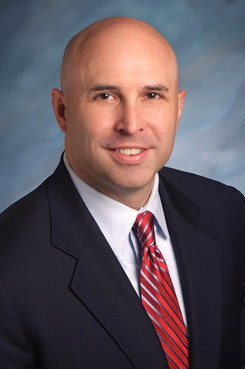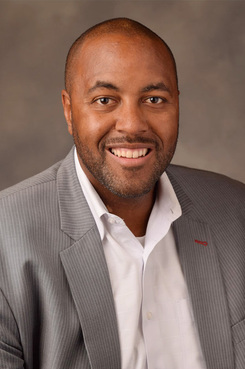How Legal Departments Are Using New Data Tools, Tactics to Fight Megaverdicts
The insurance industry is leading the pack when it comes to using this "Moneyball" approach to litigation and financial services, but other big companies' legal departments are also using data tools in their decision-making around litigation. Here's a glimpse inside the third-largest property and casualty insurer's legal operations.
December 02, 2019 at 09:00 AM
12 minute read
 Photo credit: Credit: Elnur/Shutterstock.com
Photo credit: Credit: Elnur/Shutterstock.com
An apparent increase in so-called nuclear verdicts is prompting some corporate legal departments to adopt new data tools including predictive analytics and artificial intelligence to decide whether to litigate or settle claims, and which firms and even which lawyers to use before a specific judge.
The insurance industry is leading the pack when it comes to using this "Moneyball" approach to litigation and financial services, but other big companies' legal departments are also using data tools in their decision-making around litigation. Some law firms are also adopting them.
For example, Liberty Mutual Group's legal operations department at the third-largest property and casualty insurer in the United States is a leader in data-driven decision-making.
 Robert Taylor, of Liberty Mutual Insurance.
Robert Taylor, of Liberty Mutual Insurance.Bob Taylor, vice president and senior corporate counsel for legal ideation and transformation at Liberty Mutual, said in a recent interview, "I do think we are unique in that we have data analysis, scientists and modelers embedded in the legal department."
Liberty Mutual uses data analytics not only to choose which law firms to use for specific matters in certain jurisdictions, but even to choose the specific partners who should work on those matters.
And they use other tools to analyze verdicts in specific jurisdictions, and to assess the likelihood of a motion's success in front of a certain judge. The company uses its own proprietary data as well as data and tools from outside providers for analysis, and to benchmark results.
Liberty Mutual's legal operations department uses Westlaw Edge from Thomson Reuters; Lex Machina, a LexisNexis company for data on judges, lawyers and litigants; and Gavelytics, a company in California that reports information on judges and motion rulings in some courts in California, Nevada and Florida, as well as information from other providers.
Matthew Kennedy, corporate counsel, litigation at Liberty Mutual, said the legal operations department uses these tools at the outset of litigation, "the most critical point of the case for us. We can use them to instantaneously gather critical information that shapes the case. Is this a case to settle? What is the judge like? What is the venue like?"
 Matthew J. Kennedy, of Liberty Mutual Insurance.
Matthew J. Kennedy, of Liberty Mutual Insurance.Kennedy said they also research opposing counsel, for instance, if the attorney is a top expert and has written extensively on a topic, he or she might be a formidable opponent. "For the litigation group and litigation attorneys, it is a critical tool," he said.
Damon Hart, Liberty Mutual senior vice president and deputy general counsel for litigation, added that, "You can drill down to that judge and find out how many cases like this has the judge had, which can influence the motion when you draft in front of that judge, and is he an expert?
"It is not that we are eschewing traditional methods of getting information, we are using it to enhance what we hear from outside counsel and the judgment and experience of the lawyers. For me, the data is extremely helpful to augment, supplement or sometimes confirm or deny what you are told by outside counsel. It is another point as you are considering what action to take," Hart said.
One takeaway for law firms: As more and more corporate law departments adopt this numbers-driven approach, law firms will have to adapt by matching the metrics they provide in their pitches to the key performance indicators valued by the clients whose work they seek, or they will risk being shut out of panels.
"For me, a meeting with a firm not using any tools is kind of a disqualifier. No matter how great a firm is, they are working with a small data set and if they are not using the tools it is unlikely I would add them," Hart said.
Similarly, corporate legal departments that aren't using data tools in disputes with other organizations may find themselves overmatched.
Nathan Cemenska, director of legal operations and industry insights at Wolters Kluwer, who is a lawyer with an MBA, said in the past legal departments often deferred to outside counsel to manage big cases, saying "the lawyers are gods, so the decisions they make, I am going to go ahead and trust them on that."
But he added, "We are moving further and further away from that, and you have to be able to show you have a sound decision-making process on huge cases. They are not going to let you just 'go with your gut on this,' they are going to want a damn good explanation and it has to be backed up with data on why you did what you did."
Some Tools Used In-House
Cemenska's company, Wolters Kluwer ELM Solutions Inc., for instance, announced a product in early November called Passport 19.2 with a new LegalVIEW Predictive Insights module.
Like a computer dating service for law departments and outside counsel, the company says it uses data analytics, artificial intelligence and machine learning based on the company's vast proprietary database of law firm invoices to help clients choose the best law firm for each litigation matter. The program also estimates budgets, and how long a matter should take in each phase.
Vincent Venturella, product director at Wolters Kluwer's ELM Solutions, said it uses the invoice database to train the artificial intelligence. When a legal department opens a matter, the model extracts information about its type, complexity and location and compares details of that matter with the firms currently used by that corporate legal department.
It ranks firms by performance based on 23 features weighted to match that client's values. The AI then looks at different firms' performance, as determined by client's metrics, within that type of matter, complexity and geography, and makes a recommendation, ranking the law firms in order of the best partners for that litigation.
Venturella said the tool works with most claims and litigation including those with potentially large verdicts, like commercial vehicle accidents for which there is a lot of data. But it can't really predict outcomes in mass torts such as the recent opioid litigation because they are outliers, and there aren't enough of them to use in a predictive model.
"When you have a once in a decade, or once in a lifetime verdict, there is no like-to-like and you have to bring in a different expert," he said.
Some other companies and startups tapped by corporate law departments include UniCourt, which offers software-as-a-service that compares attorneys' experience in specific types of litigation and runs conflict-of-interest searches, among other functions; and CaseMetrix LLC of Atlanta, which keeps a database of motor vehicle and premises liability verdicts and settlements in seven southeastern states that is used by insurers and litigation funders to estimate and benchmark payouts.
"They are using the data for risk assessments and trying to figure out what a case is going to be worth and how much they should fund on it," said CaseMetrix CEO Alan Pershing.
There is also Premonition.ai, whose main office is in Miami. Founded in 2014, the company claims to have the world's largest litigation database, scraping cases in state and federal courts every hour. The database is used by several of its analytics tools.
"We can run a national search on our system and no one else can do that," capturing 87% of the U.S. population, claims Toby Unwin, the company's chief innovation officer and co-founder. He said the company's clients include insurance companies and litigation funders.
One of Premonition.ai's products evaluates claims coming into a legal department and codes them red, yellow or green like a traffic light. "Let's say you have a traffic accident, if it is in Cook County, Illinois, it is a plaintiff-friendly court but the same in Delaware is likely to be green. The Illinois case you may want to settle quickly because you don't want to touch a court system," Unwin said, describing how the tool can be used to reduce the risk of huge verdicts.
The company also provides a report that evaluates lawyers' courtroom performance by their "win rates," with a dismissal counting as a win for the defense attorney, for instance, and a judgment as a plaintiff win in litigation.
Data-Mining and AI Challenges
But Unwin and others in this growing field acknowledge that like all AI and data analytics, results can't be much better than the data fed them. There are thousands of courts in the United States, and big differences in the accuracy and completeness of records from one jurisdiction to another, and in the ease of accessing those records. Some state and municipal courts also purge records after a period.
"Connecticut is the Mercedes of court data sets," Unwin said, because there are only eight counties and all are online "but the court system deletes them after 20 years, and the federal system loses thousands of cases and can't get them back. They lost several thousand bankruptcies."
Errors and omissions in court records, and discrepancies in how the records are kept, affect all efforts to compile and analyze legal data across jurisdictions, and some big data providers are working on solutions with client partners to iron out the wrinkles, company representatives said.
A typical state court problem, for example, occurs in Orange County, California where only the law firm and not the attorney is listed on a case," said Josh Blandi, CEO and co-founder of UniCourt.
"In Ohio, it's difficult to get information on specific attorneys," he said. And an issue with PACER, the federal court system case tracker, is that "if an attorney moves from one firm to another, it allows her to update her profile and apply it to all cases, or a time period, which can skew the analytics by giving credit on old matters to the new firm instead of the original one."
More significantly, settlements, which are 95% of 97% of cases, are often confidential.
 Damon Hart, of Liberty Mutual Insurance.
Damon Hart, of Liberty Mutual Insurance.A global trend toward privacy rights, while not currently affecting public records such as court documents in the U.S. or in most countries, could theoretically throw a crimp into future development and expansion of certain kinds of legal predictive analytics.
For example, France has enacted a new law banning publication of statistics about judges' decisions with a maximum prison sentence of five years for a violation. In Europe, the General Data Protection Regulation included a "right to be forgotten" and to have personal data erased, which, although court records are exempt, might affect certain kinds of personal data-gathering in the European Economic Community.
There is also the problem of algorithmic bias, which is when a machine learning or deep learning program acquires the existing biases in the data being fed into it, perpetuating or worsening the effect. For instance, one study found that word-embedding algorithms had a tendency to associate words such as "programming" and "engineering" with men and "homemaker" with women. That also could be a problem in the legal industry, including legal technology, in which women and diverse attorneys have been historically underrepresented.
A Numbers-Supported Rationale
While using data analytics and predictive modeling doesn't assure a positive outcome in litigation, it at least provides law departments and their outside counsel with a strategic rationale, providers said.
"No one can guarantee the outcome of litigation, but when the CEO is chewing you out for losing a nuclear verdict, at least you can say that this lawyer had 32 straight wins," Unwin said.
"We are treating the business of law like we deal with every other business, every other part of the business world is steeped in data and data-driven decisions," said Liberty Mutual's Hart.
"Up till now, lawyers have been able to say this is different, this is legal. Lawyers and paralegals need to adapt to using these tools in order to compete. In 15 or 20 years, I don't think it will be possible to practice law without using these tools," he said.
Read More:
Here's a List of Some Tech Tools Law Departments Are Using to Combat Nuclear Verdicts
Big Verdicts Rise Sharply In SE Trucking Accidents: Here's an Interactive Graph
AI is Proving to be the Ultimate Value-Add for Law Firms
Lexis Advance's CourtLink Integration Brings Solution into Modern Age
This content has been archived. It is available through our partners, LexisNexis® and Bloomberg Law.
To view this content, please continue to their sites.
Not a Lexis Subscriber?
Subscribe Now
Not a Bloomberg Law Subscriber?
Subscribe Now
NOT FOR REPRINT
© 2025 ALM Global, LLC, All Rights Reserved. Request academic re-use from www.copyright.com. All other uses, submit a request to [email protected]. For more information visit Asset & Logo Licensing.
You Might Like
View All
Google Fails to Secure Long-Term Stay of Order Requiring It to Open App Store to Rivals

'Am I Spending Time in the Right Place?' SPX Technologies CLO Cherée Johnson on Living and Leading With Intent
9 minute read
'It Was the Next Graduation': How an In-House Lawyer Became a Serial Entrepreneur
9 minute read
Renee Meisel, GC of UnitedLex, on Understanding and Growing the Business
6 minute readTrending Stories
- 1Reviewing Judge Merchan's Unconditional Discharge
- 2With New Civil Jury Selection Rule, Litigants Should Carefully Weigh Waiver Risks
- 3Young Lawyers Become Old(er) Lawyers
- 4Caught In the In Between: A Legal Roadmap for the Sandwich Generation
- 5Top 10 Developments, Lessons, and Reminders of 2024
Who Got The Work
J. Brugh Lower of Gibbons has entered an appearance for industrial equipment supplier Devco Corporation in a pending trademark infringement lawsuit. The suit, accusing the defendant of selling knock-off Graco products, was filed Dec. 18 in New Jersey District Court by Rivkin Radler on behalf of Graco Inc. and Graco Minnesota. The case, assigned to U.S. District Judge Zahid N. Quraishi, is 3:24-cv-11294, Graco Inc. et al v. Devco Corporation.
Who Got The Work
Rebecca Maller-Stein and Kent A. Yalowitz of Arnold & Porter Kaye Scholer have entered their appearances for Hanaco Venture Capital and its executives, Lior Prosor and David Frankel, in a pending securities lawsuit. The action, filed on Dec. 24 in New York Southern District Court by Zell, Aron & Co. on behalf of Goldeneye Advisors, accuses the defendants of negligently and fraudulently managing the plaintiff's $1 million investment. The case, assigned to U.S. District Judge Vernon S. Broderick, is 1:24-cv-09918, Goldeneye Advisors, LLC v. Hanaco Venture Capital, Ltd. et al.
Who Got The Work
Attorneys from A&O Shearman has stepped in as defense counsel for Toronto-Dominion Bank and other defendants in a pending securities class action. The suit, filed Dec. 11 in New York Southern District Court by Bleichmar Fonti & Auld, accuses the defendants of concealing the bank's 'pervasive' deficiencies in regards to its compliance with the Bank Secrecy Act and the quality of its anti-money laundering controls. The case, assigned to U.S. District Judge Arun Subramanian, is 1:24-cv-09445, Gonzalez v. The Toronto-Dominion Bank et al.
Who Got The Work
Crown Castle International, a Pennsylvania company providing shared communications infrastructure, has turned to Luke D. Wolf of Gordon Rees Scully Mansukhani to fend off a pending breach-of-contract lawsuit. The court action, filed Nov. 25 in Michigan Eastern District Court by Hooper Hathaway PC on behalf of The Town Residences LLC, accuses Crown Castle of failing to transfer approximately $30,000 in utility payments from T-Mobile in breach of a roof-top lease and assignment agreement. The case, assigned to U.S. District Judge Susan K. Declercq, is 2:24-cv-13131, The Town Residences LLC v. T-Mobile US, Inc. et al.
Who Got The Work
Wilfred P. Coronato and Daniel M. Schwartz of McCarter & English have stepped in as defense counsel to Electrolux Home Products Inc. in a pending product liability lawsuit. The court action, filed Nov. 26 in New York Eastern District Court by Poulos Lopiccolo PC and Nagel Rice LLP on behalf of David Stern, alleges that the defendant's refrigerators’ drawers and shelving repeatedly break and fall apart within months after purchase. The case, assigned to U.S. District Judge Joan M. Azrack, is 2:24-cv-08204, Stern v. Electrolux Home Products, Inc.
Featured Firms
Law Offices of Gary Martin Hays & Associates, P.C.
(470) 294-1674
Law Offices of Mark E. Salomone
(857) 444-6468
Smith & Hassler
(713) 739-1250






